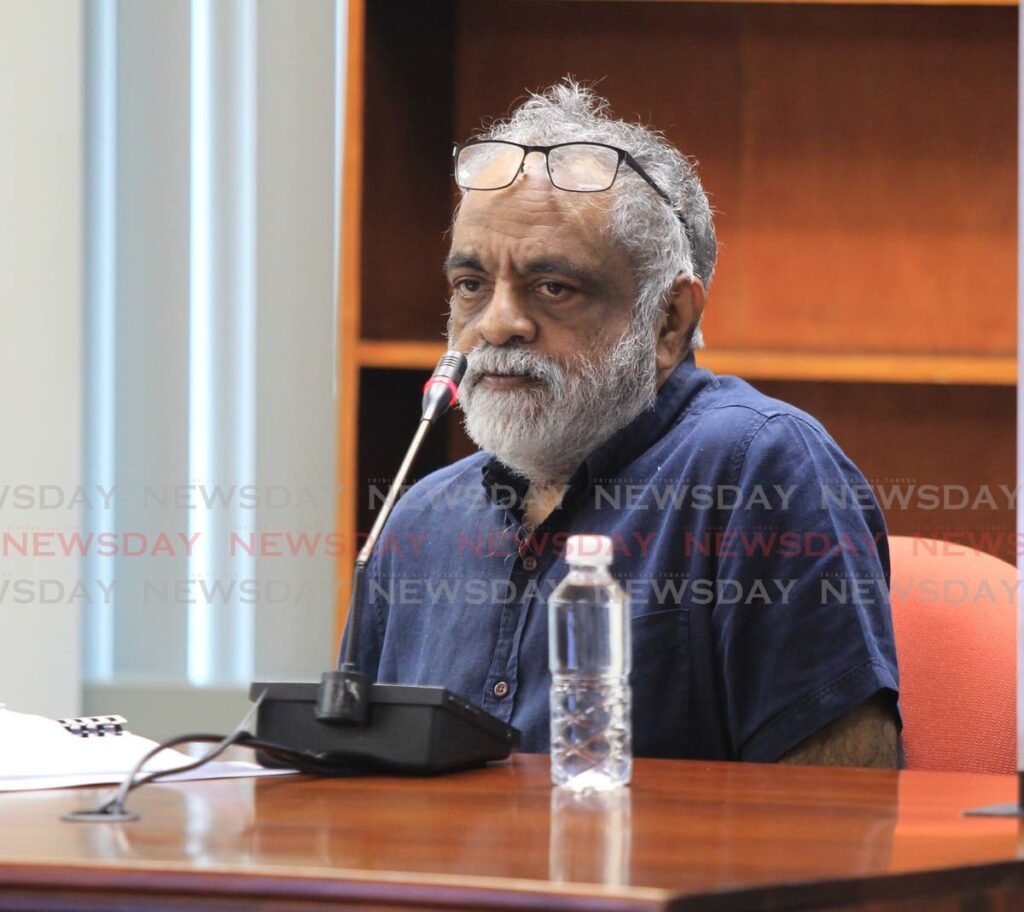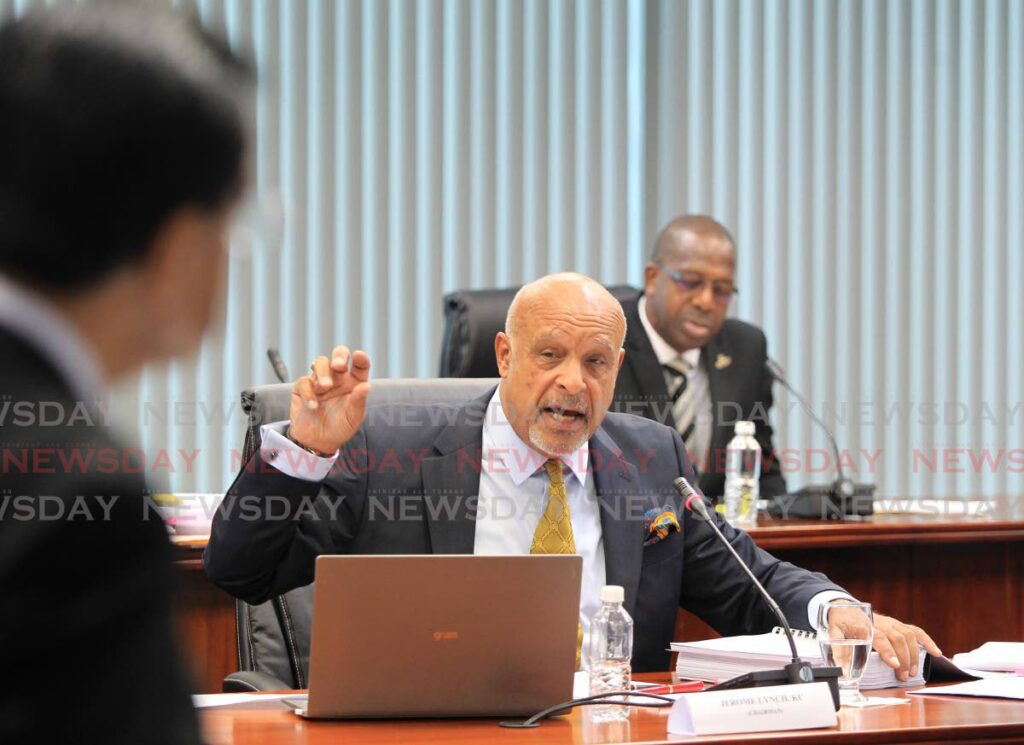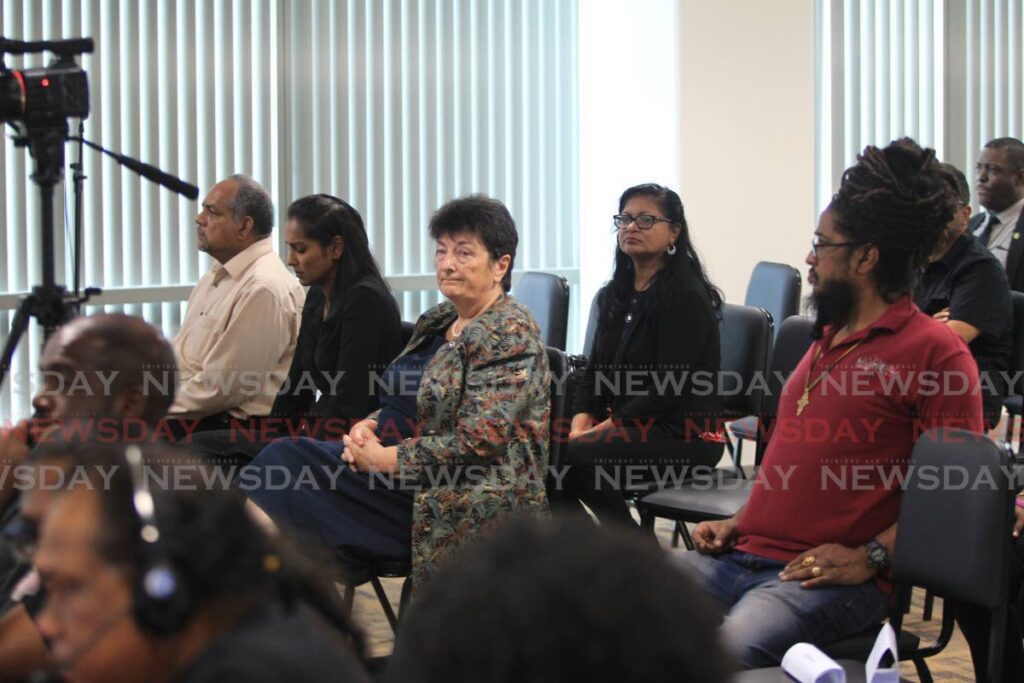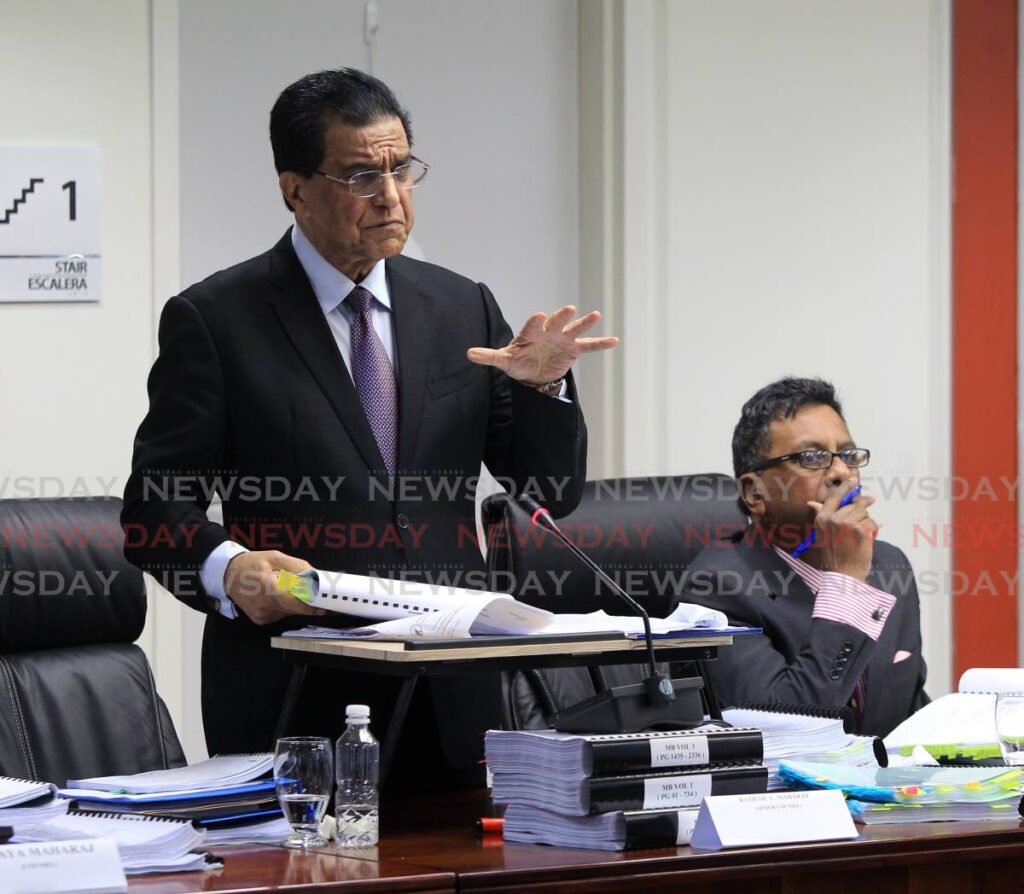LMCS owner at Paria CoE: ‘Not doing that job again’

KAZIM ALI SNR, head of LMCS, the company contracted to repair an undersea pipeline in which four divers died, including his son, told Monday's hearing of the commission of enquiry (CoE) into the tragedy that he would never again carry out such a job.
The CoE resumed after a ten-day break, allowing witnesses to expand orally on their already-submitted witness statements and to be cross-examined.
The hearing at the Waterfront Centre, Port of Spain, was chaired by Jerome Lynch, KC, with Ramesh Lawrence Maharaj, SC, as CoE counsel and Gilbert Peterson, SC, representing the Paria Fuel Trading Co Ltd, at whose sealine 36 berth six the tragedy occurred.
Fyzal Kurban, Kazim Ali Jr, Rishi Nagassar and Yusuf Henry died, while Christopher Boodram escaped from the pipe.

asks a question on Monday at Tower D, Waterfront Centre, Port of Spain. - ROGER JACOB
The hearing tried to ascertain the amount and distribution of oil in the ill-fated pipeline, and whether those conditions had caused a deadly phenomenon known as Delta P, when a "differential pressure" could have sucked in the men to their doom.
Ali periodically grimaced in distress as he testified.
Lynch asked Ali, "If you did this job again, whether for Paria or anyone else, would you identify Delta P as a potential risk?"
Smiling fleetingly through his pain, Ali said, "Chief, I'm not going anywhere near this job again."At the start of the hearing, Lynch asked all to treat Ali with empathy, as his son had died. Ali took his oath, his voice shaking.Lynch told him, "Everyone feels your loss. It must be hard for you to have to give evidence. No father wants to see their children die before them, I have my own two sons."
Ali's testimony focused on events before the accident and then what happened afterwards, in terms of hopes for rescue of the trapped men. Ali said after the accident, he quickly surmised the men were in the pipe, especially after diver Andrew Farah had done a seabed inspection and found nothing, leading Ali to assume everything (and everyone) had been sucked into the pipeline.
"Early in the game we realised they weren't all floating around the water."
Ali said he had told Paria's Catherine Balkissoon of his rescue plan, but in reply was told it had to be run by Paria's Mushtaq Mohammed.

Lynch asked about the men's air supply.
Ali said, "Until Boodram came out, we didn't even think about air pockets in the line."
Lynch said before Boodram's information, Ali would have estimated each of the five men had one hour of air supply in his scuba tank.
Ali said, "If all five survived, there'll be the use of one bottle each, so they'd have about an hour.
"But it depended on how many survived. The survivors would have a longer time. If one diver had survived, he would have had five tanks himself, because the others wouldn't be using it.
"One of the divers had the full gear on him when they were sucked in, which happened to be my son. If he had survived he would have been rescued. There was a time – an hour at the least and probably four hours – if one diver had survived."
Lynch said Ali had felt he had a one-five hour window for rescue. Lynch asked if Boodram had given Ali hope when he emerged, saying the pipeline had air pockets, and asked if Ali had any idea of the size of the air pockets and how much time was available to rescue the men.
Ali replied, "We were just going on hope. I calculated afterwards we had about 1,500 cubic feet of air."
He did not know how long this volume of air could sustain the men at their depth undersea.

"What kept us going was that we heard a constant knocking from the pipeline."
Earlier, assistant counsel to the CoE Ronnie Bissessar read out Ali's witness statement. He related, "Kazim Ali Snr said (Paria's) Catherine Balkissoon told him she did not think it was safe to send divers into the pipeline, and that Paria had a plan to pump out the line and send in confined space experts to take the men out."
Ali lamented that while he was on a barge with other people, a HSE (health, safety and environment) official had said the men's chances of survival were slim. Ali said a coast guard officer (Mr Fuentes) had feared his wetsuit was inadequate to protect him against any radiation in the pipeline, although someone else said such a risk was low. He said Mohammed had viewed operations as a recovery, not a rescue, but Ali had disagreed.
Bissessar read, "He (Ali) said he got the impression Paria had made up their minds long before."

Comments
"LMCS owner at Paria CoE: ‘Not doing that job again’"